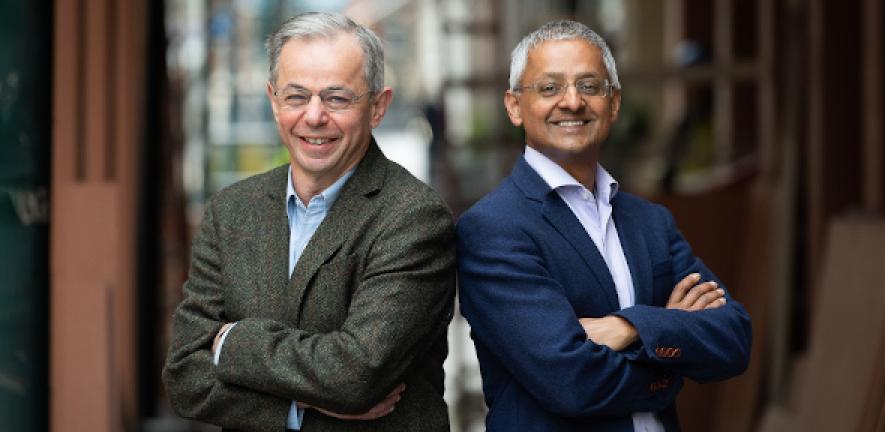
They share the award with Pascal Mayer, from the French company Alphanosos, for the development of next-generation DNA sequencing.
Professors Balasubramanian and Klenerman, who have both been awarded knighthoods for their services to chemistry, co-invented Solexa-Illumina Next Generation DNA Sequencing (NGS), technology that has enhanced our basic understanding of life, converting biosciences into ‘big science’ by enabling fast, accurate, low-cost and large-scale genome sequencing – the process of determining the complete DNA sequence of an organism’s make-up. They co-founded the company Solexa to make the technology available to the world.
The benefits to society of rapid genome sequencing are huge. The almost immediate identification and characterisation of the virus which causes COVID-19, rapid development of vaccines, and real-time monitoring of new genetic variants would have been impossible without the technique Balasubramanian and Klenerman developed.
The technology has had – and continues to have – a transformative impact in the fields of genomics, medicine and biology. One measure of the scale of change is that it has allowed a million-fold improvement in speed and cost when compared to the first sequencing of the human genome. In 2000, sequencing of one human genome took over 10 years and cost more than a billion dollars: today, the human genome can be sequenced in a single day at a cost of less than $1,000. More than a million human genomes are sequenced at scale each year, thanks to the technology co-invented by Professors Balasubramanian and Klenerman, meaning we can understand diseases much better and much more quickly. Earlier this year, they were awarded the Millennium Technology Prize. Balasubramanian is also based at the Cancer Research UK Cambridge Institute, and is a Fellow of Trinity College. Klenerman is a Fellow of Christ's College.
In addition, Professor Suchitra Sebastian, from the Cavendish Laboratory, and Professor Jack Thorne, from the Department of Pure Mathematics and Mathematical Statistics, have been recognised with the New Horizons Prize, awarded to outstanding early-career researchers.
For the tenth year, the Breakthrough Prize recognises the world’s top scientists. Each prize is worth US 3 million and is presented in the fields of Life Sciences, Fundamental Physics (one per year) and Mathematics (one per year). In addition, up to three New Horizons in Physics Prizes, up to three New Horizons in Mathematics prizes, and up to three Maryam Mirzahkani New Frontiers Prizes are given out to early-career researchers each year, each worth US 100,000.The Breakthrough Prizes were founded by Sergey Brin, Priscilla Chan and Mark Zuckerberg, Yuri and Julia Milner, and Anne Wojcicki.
This text has been adapted from an article written by Sarah Collins, which first appeared on the University of Cambridge website.

